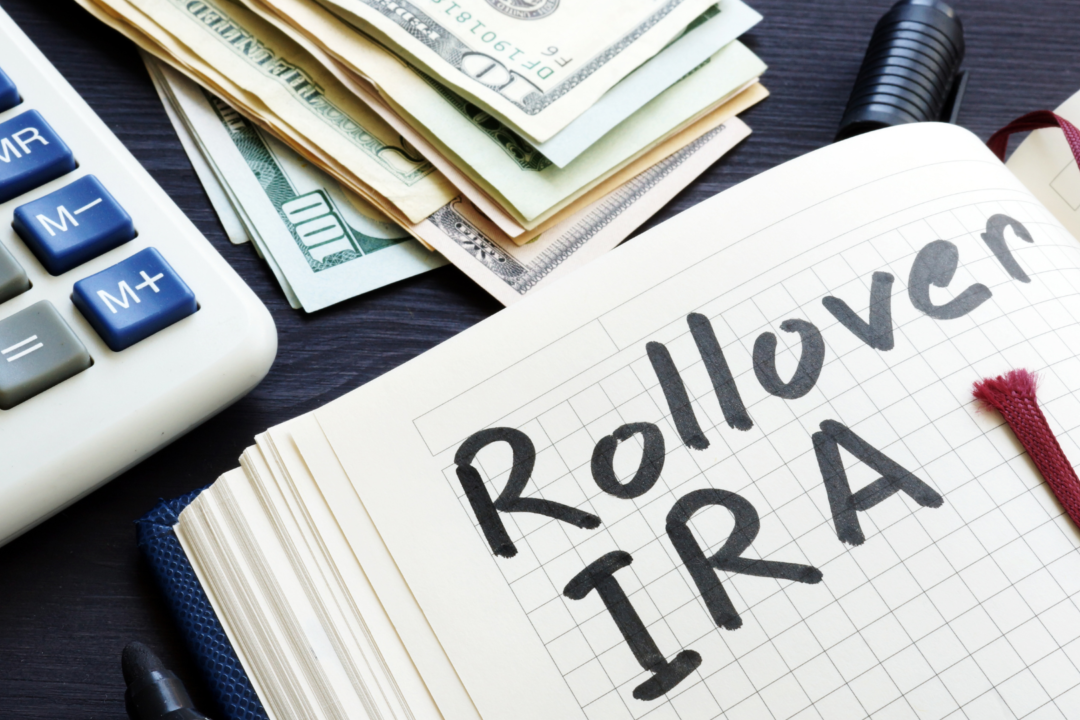Bitcoin has emerged as one of the most talked-about investments in the past decade. But does all the buzz translate into an investment strategy you should consider? Should you invest in Bitcoin?
Holding Bitcoin in your IRA may offer a way to diversify your retirement portfolio, but it comes with unique considerations. Understanding the benefits, risks, and how crypto investments work can help you decide if this popular cryptocurrency should become a part of your retirement strategy.

What Is a Bitcoin IRA?
A Bitcoin IRA is a self-directed IRA that allows you to hold cryptocurrency, such as Bitcoin, Dai, and Ethereum, in your retirement account.
Unlike standard IRAs that are limited to assets like stocks and mutual funds, self-directed IRAs allow you to hold alternative investments, including but not limited to cryptocurrencies.
Bitcoin IRAs share many of the same characteristics as standard IRAs. For instance, they can be structured as a Roth or a Traditional account with the same annual contribution limits. However, these accounts must be opened with IRS-approved custodians, like Horizon Trust, that permit digital assets.
How a Bitcoin IRA Works Compared to a Standard IRA
Standard IRAs are managed through brokerage firms, banks, and similar entities. They can only hold common assets, like stocks, ETFs, mutual funds, and CDs.
They can’t hold cryptocurrency. A Bitcoin IRA, by contrast, allows you to invest directly in the cryptocurrency of your choice.
These accounts are only available through approved custodians, and you’re responsible for all the due diligence and risk management when you invest.
As such, you have more control over how and when you invest your funds and can quickly take advantage of cryptocurrency opportunities as markets shift.
Benefits of Adding Bitcoin to Your IRA
According to Security.org, Cryptocurrency ownership has doubled over the last several years. Today, over one in four American adults owns cryptocurrencies. The uptick in cryptocurrency ownership is not without reason. Here are some of the most common benefits of investing in Bitcoin and other cryptocurrencies.
- Portfolio diversification. Bitcoin and other cryptocurrencies are not dependent on traditional markets, which can help you diversify your portfolio, especially if your current investments rely heavily on conventional market assets.
- Growth potential. Crypto has shown periods of high return, which can boost long-term savings.
- Hedge against inflation. Some investors view Bitcoin as a hedge against fiat currency devaluation, including the U.S. dollar.
- Increased awareness. As cryptocurrencies, especially Bitcoin, become more common, their longevity and potential increase.
Potential Risks and Volatility Concerns
Cryptocurrency investments aren’t without risk. If you’re considering a Bitcoin IRA, keep the following in mind:
- Price volatility. Large price swings can be very beneficial if you’re watching and timing markets, but if you are looking for a passive way to grow your investment account quickly, Bitcoin may not be the right choice.
- Lack of regulations. Though governments are beginning to recognize the growing importance of cryptocurrencies, there is still a lack of regulation.
- Security risks. Digital assets are vulnerable to hacking if not stored properly. As such, you must complete due diligence while making transactions and storing your coins.
Tax Implications of Holding Bitcoin in an IRA
All IRAs, including those holding Bitcoin, benefit from tax advantages and growth. While in your account, your funds will grow tax-free.
Your gains are tax-deferred if you have a traditional IRA, meaning you’ll pay taxes on withdrawals. If you have a Roth SDIRA, contributions are made with after-tax dollars, so your withdrawals are tax-free in retirement.
Generally, tax obligations outside of traditional IRA withdrawals are limited, but there are certain circumstances under which your Bitcoin IRA may be subject to unrelated business income tax (UBIT). Primarily, your SDIRA may be subject to UBIT if you are using it to mine cryptocurrency.
Custodians and Platforms That Support Crypto IRAs
Not all IRA custodians allow cryptocurrency, so reviewing your options before investing is essential. Here are some things to keep in mind before choosing a custodian:
- Ensure that the custodian you choose allows cryptocurrency investment. If you’re unsure if a specific custodian allows this type of investment, contact them directly.
- Choose a custodian that is well-experienced in crypto investments. Different asset classes, including cryptocurrency, have unique rules and requirements. Choose a custodian that allows cryptocurrency and has a track record of experience with cryptocurrency clients.
- Review supported coins. Ensure that your chosen custodian allows the coin(s) you plan to invest in, prioritizing those that provide a range of options to enhance your future investment capabilities.
- Fees. All custodians charge fees, but how much you’ll pay can vary significantly. Review your custodian’s fee schedules, especially any specific to cryptocurrency transactions.
Security and Storage Considerations
Crypto security is critical to your investment, especially when your retirement savings are on the line. Reputable Bitcoin IRA providers typically use cold storage (offline wallets), multi-signature protections, and insurance to reduce the risk and impact of thefts and hacks.
Before choosing a provider, ask about the following:
- Storage procedures. Are your assets held entirely offline?
- Insurance coverage. What, if any type of insurance, does the custodian carry, and what events does it cover?
- Security audits. Does the custodian conduct regular third-party security reviews?
- Access controls. Who can authorize transactions, and how are they protected?
Regulatory Landscape and Compliance Issues
If you’re considering adding Bitcoin to your IRA, it’s essential to understand how current tax laws, reporting rules, and compliance standards may impact your investment and your custodian’s responsibilities.
Tax structure
The IRS classifies cryptocurrency as property, meaning it’s subject to capital gains tax when traded or sold in a taxable account. However, gains from Bitcoin held within an IRA can grow tax-deferred (Traditional IRA) or tax-free (Roth IRA). Evolving regulatory guidance
While holding Bitcoin in an SDIRA is legal, the regulatory environment is still developing. Agencies like the IRS, SEC, and CFTC continue to refine how digital assets are taxed, regulated, and reported.
As such, rules can change. Working with a custodian who actively tracks legal updates is essential. However, since SDIRA holders are responsible for due diligence, it’s wise to stay on top of changes independently.
Reporting requirements
Even within an IRA, account holders may be subject to annual reporting. While crypto trades inside the IRA don’t require the same forms as those in other accounts, your custodian will likely still need to file Form 5498. Additional forms, such as FBAR or FATCA, may be required if your custodian uses international storage platforms.
Who Should Consider a Bitcoin IRA?
A Bitcoin IRA may be worth considering if:
- You are comfortable with high-risk, high-reward investments and have a high risk tolerance.
- You want to diversify beyond traditional assets.
- You already hold crypto and want tax-advantage growth.
- You’re willing to do the due diligence and follow the crypto market closely.
Conversely, Bitcoin may not be the best fit if you have a low risk tolerance or have a relatively short window to build your retirement, as market swings can affect your short-term earnings.
FAQs
Can I hold Bitcoin in a traditional or Roth IRA?
While you can hold bitcoin in an IRA designated as a traditional or Roth account, the account must be self-directed. You cannot hold cryptocurrency within a standard IRA, regardless of how it’s structured. Self-directed IRAs (SDIRAs) are designed to hold various alternative assets, including cryptocurrency.
How do I set up a Bitcoin IRA?
To set up a Bitcoin IRA, follow these steps:
- Find a custodian who allows Bitcoin.
- Set up your self-directed IRA with your chosen custodian.
- Fund your SDIRA using a transfer from another IRA, a rollover from a qualified retirement account (e.g., 401(k)), or an account contribution.
- Select and invest in the crypto asset of your choice.
Are there tax advantages to holding Bitcoin in an IRA?
Yes. While in your account, earnings grow tax-deferred. If you have a traditional SDIRA, you pay taxes when you make a qualified withdrawal. You do not need to pay taxes on qualified withdrawals if you have a Roth IRA.
Related Posts
January 15, 2026
What Are The Best Compound Interest Investments? Top 7 Picks
Compound interest investments are short or long term bank-type or money market…



